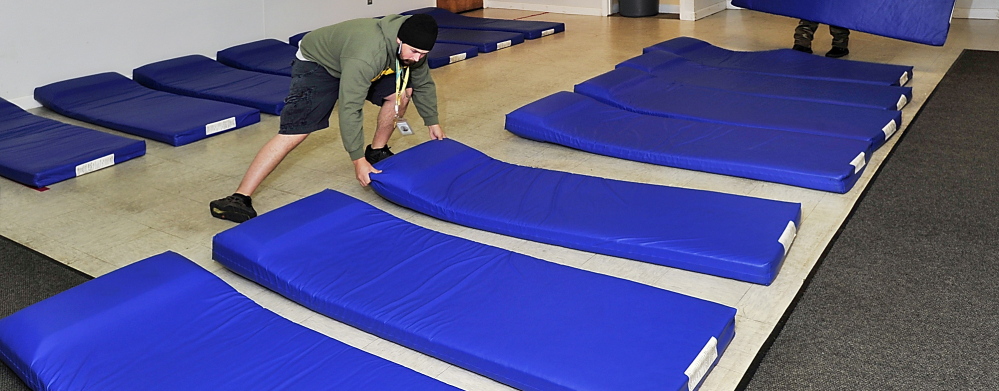If you’ve walked through Portland, you’ve seen them. Ragged people who talk to themselves. Men and women picking through trash cans or pushing shopping carts or asking for spare change. Some are so damaged by years of hard drinking they can barely walk.
These are the victims of a collapsing mental health system that is unable to care for those most in need. The worst-off among them cycle between living on the street and in the county jail, where their untreated mental illness gets worse with time.
These people are also the center of a policy standoff between the LePage administration and the city of Portland. The administration wants to reduce the amount of General Assistance money that Portland gets from the state, which it uses to keep its municipal homeless shelter afloat. State officials claim that if the city were forced to pay more of the bills, it would spend less on its program. The city says that this is a matter in which it has no discretion: If it starts turning people away from the shelter, people will die.
PORTLAND’S PROBLEM
So far, the governor and commissioner of Health and Human Services have cast this as a problem unique to Portland: The city is an outlier, they argue, which uses more than its share of state resources. The supposed clincher was the disclosure last week that 13 people who were heavy users of the shelter also had considerable assets that could have been used to pay for housing.
But this is not a local problem. Portland may operate the shelter, but it is really a regional program that provides a life-saving service that is not available elsewhere. People from all over the state use the city’s shelters, and the state needs to be a partner in operating them.
And it’s not just a case of Portland being sloppy with state money. A few extraordinary cases, such as a shelter user who is supposed to have had $160,000 in liquid assets, does not explain the high cost of dealing with a deep social problem. Services for the homeless are not overly generous: They are minimal and inadequate to meet the need.
Consider this calculation: One night this winter, 282 people lined up at the Oxford Street Shelter in hopes of getting one of 142 thin, foam rubber mats to sleep on. Of the unlucky, 75 were able to sleep on the floor of the Preble Street soup kitchen. The rest spent the night sitting up in chairs in a city office.
Even if the 13 shelter users who are alleged to have assets had been made to pay for their lodging, the shelter would still be short 140 mats. And when morning arrived, many of the people who are turned out into the cold would still be struggling with their illnesses on their own. Most homeless people don’t have health insurance and get little treatment, if any.
NO EASY ANSWERS
Homelessness is a complex problem that doesn’t yield to easy answers. Mental illness and substance abuse are not the only causes. A shortage of affordable housing and the loss of good-paying, low-skill manufacturing jobs also contribute. Thousands of Mainers are one medical problem or car repair away from losing their jobs and ending up on the street.
The good news here is that no one is defending the status quo. City officials and social service providers have been saying for years that emergency shelters are a terrible way to house people for the long term. And General Assistance, a program designed to give temporary help to people in a moment of need, is the wrong way to keep shelters open.
If the LePage administration is serious about reforming the way we care for the homeless, it may find some surprising partners among city officials and social service providers.
They won’t be on board for the governor’s plan, which is to penalize Portland because it delivers the majority of services.
But if the governor wants to end the practice of keeping shelter doors open with General Assistance funds, the people on the front lines are ready to talk.
Send questions/comments to the editors.



Success. Please wait for the page to reload. If the page does not reload within 5 seconds, please refresh the page.
Enter your email and password to access comments.
Hi, to comment on stories you must . This profile is in addition to your subscription and website login.
Already have a commenting profile? .
Invalid username/password.
Please check your email to confirm and complete your registration.
Only subscribers are eligible to post comments. Please subscribe or login first for digital access. Here’s why.
Use the form below to reset your password. When you've submitted your account email, we will send an email with a reset code.